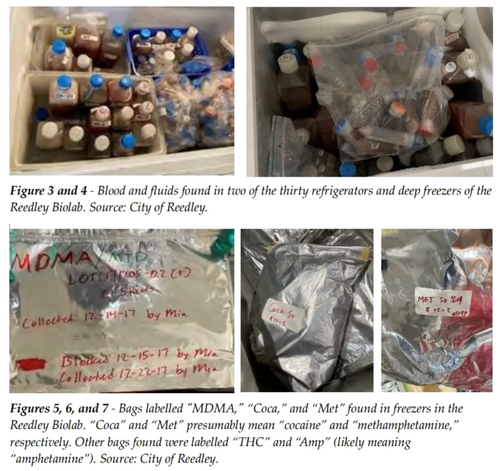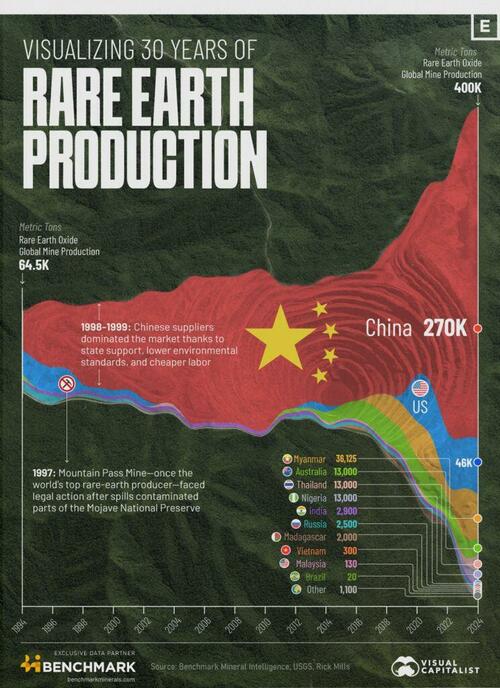Canada’s Coming Police State: Bills C-2, C-8 & C-9
Madison and Maycee Holmes
Our Liberal government is attempting to pass three bills, which together will make Canada a police state.
Bill C-2, the Strong Borders Act, which should be called the Strong Surveillance Act will remove your right to privacy. Bill C-8, the Combatting Hate Act will leave you open to prosecution for online comments or activities the government does not approve of, and Bill C-9, the CyberSecurity Act, will be used to force internet service providers to hand over your private information, and to remove your right to internet access.
Two of these bills have already passed second reading. If they are not stopped, Canada will shortly be a police state.
Want more Holmes?
Find them on Substack, Rumble and YouTube
You can also contact the Holmes sisters directly at Connect@at-home-with-holmes.com
(0:00 - 0:04) Hello, hello, hello, everybody. I'm Madison Holmes. And I am Maycee Holmes. (0:04 - 0:20) And you're watching Holmes Squared. So for today's episode of Holmes Squared, we are looking at our lovely country, Canada, and more things that we regret it does to us. Yes, very, very true. (0:20 - 0:40) So there are three bills that are currently in passing, which... Yeah, and if you guys are regular audiences of Will's programme, I'm sure you're already aware, but we're just gonna pull it out and talk a bit about it from our perspective, and then we'll probably lead into the independence argument. So let's talk about these stupid freaking bills. Yeah, there's three that are in the works right now. (0:40 - 0:53) Bill C-8, Bill C-2, and Bill C-9. Now, Bill C-8 is called the Critical Cyber Security Protection Act. That's the one coming out. (0:54 - 1:41) And what that one does, it amends telecoms, the Telecoms Act, basically allowing a ministerial order, so the cabinet of the federal government, to tell a telecoms company, TELUS, Roger, Bell, whatever they want, and they can say, you have to give me not only your subscription list, if there is an individual that they see that they are doing some sort of arbitrary thing they don't approve of online, they can give an order for those companies to shut down their internet. And not only can they do it, they can do it secretly. They don't even need any transparency. (1:41 - 1:58) The only thing that has to be recorded is the fact that there has been a shutdown of somebody's internet, but it doesn't have to say any other information other than the fact that it happened. And which one was that one? That's Bill C-8. Yeah, the Bill C-8 Cyber Security. (1:58 - 2:19) That was the one where they could say they could shut off literally any person's, like, civilian's internet, right? Yeah, civilian's internet, phone. Oh, and you're saying just based on those different corporations, that's how they could be doing the spying to be like, oh, that's the person that we want to take down, kind of thing. Yeah, because they could ask for, like, subscriber lists and stuff along those lines. (2:19 - 2:54) So that's, they could, that's really big, the online, because it's called the Cyber Security Protection Act. So via phones or your internet, they can just... And you get fines too, if that order is disobeyed, or if people try to back around the order, not only can individuals get fined, but so can companies. So if you have a business that, I don't know, maybe it's more freedom-minded, maybe you have a podcast corporation of sorts, and then they don't approve of it. (2:56 - 3:10) They can fine your corporation just as they can fine an individual, so. Yeah, I remember in the John Carpay one that I was watching, it's like five minutes. Granted, if you're watching us, you don't really need to watch it, because we're about to give it to you. (3:10 - 3:40) But he was relaying the message that even for the cyber security one, it's like they're still giving it under the guise of helping you, right? So it's like, oh, we have to conquer like security, like cyber security, right? And like infiltrators and hackers and blah, blah, blah. And so it's just a bunch of bullshit, again, wrapped up as if they were giving you a solution, which is really just more crackdown, so. Yeah, yeah. (3:41 - 3:52) So here's one of the ones that, this is a longer one, but. It's on the Juno News. Juno News is another one that talks more about, I think. (3:52 - 4:01) Oh, sorry, you're saying this one? This is the John Carpay one that you and I listened to. You also listened to a longer one. Oh, no, that's a longer one. (4:01 - 4:05) Yeah, this one's 30 minutes. I listened to like a five minute one. Oh, gotcha, okay. (4:05 - 4:20) Well, yeah, because John Carpay, yeah, you can see Justice Centre for Constitutional Freedoms. He's a big figure here in Alberta. Another one of those lawyers that have been known for fighting freedom is what he is on the face. (4:21 - 4:49) So just like we have Jeff Rath and then there's Keith Wilson, who, I should just bring this up for fun, because on the Alberta independence thing, Keith Wilson, again, another lawyer, law office here, he did an interview, and he'll be speaking at a rally that we'll get to later, but he did an interview with Glenn Beck. And this is the tweet that Glenn Beck posted, which was so encouraging. I'll just read it for those listening. (4:49 - 5:25) It says, so Glenn Beck posted on his Twitter, aka X, and it says, the Trump admin is open to recognising Alberta as an independent nation. If it votes to secede from Canada in 2026, the lawyer leading the Alberta separatist referendum, Keith Wilson, tells me, my understanding from the meetings that have occurred is that the Trump admin officials have indicated that the US would recognise a vote by the people of Alberta to become independent. I think the Trump admin also recognises you guys have right above your border in Montana, the third largest reserve of oil and gas in the world. (5:26 - 5:38) Yes. So that's, again, all these lawyers in Canada are in Alberta on the front lines. So that's exciting news, I mean, for those of us who are in favour of Alberta separation. (5:38 - 6:21) And the reason why, again, bills that are coming out like Bill C-8, C-9, C-2, and we'll continue down that route, they already tried passing bills, what was it, 63? And that one got subsided just because, you know, the parogue at the time when the cabinet literally just went away. But we already have other bills like this. And so even these ones coming down the line, again, the metaphor that we always talk about is to save Canada, we first have to put our own oxygen mask on, and then we can help the rest of people. (6:21 - 6:50) Because if we're a part of this, I mean, this show doesn't exist anymore. If those bills pass and we're still a part of Canada, whereas if Alberta has its own constitution, or we at least have our own ability to do our podcast still, we can still communicate ideas. Whereas, you know, the more if we all stay in this bandwidth, we'll get isolated, and then it forces us to go back local, because you can't communicate with the rest of the rest of the country anymore. (6:50 - 7:01) Yeah. And so now let's move on to the other one. So what was Bill C-9, I believe? Bill C-9 was the Combating Hate Act. (7:02 - 7:29) So, yeah, it's... And we've already got, I don't know the exact name of the bill, but we already have one that basically says that hate speech is a thing that can get you in trouble and basically get you fined and or arrested. Yeah, it... Because we've got... What Bill C-9 does is it expands hate speech into the criminal code. So this is for criminal provisions. (7:30 - 7:43) And so I think it makes five changes to the criminal code. Which, again, Bill C-63, which was going to get passed, that was a really big hate speech law. Luckily, it didn't. (7:44 - 8:01) They're bringing it back and bringing aspects of it back via these three bills now. So we already have the Bill C-18 Act, which is the Online News Act. That one has already done lots of restricting for people, even like Juno News and the News Media Group. (8:02 - 8:13) They've already faced some repercussions. Being shut down and being suppressed, which I'm sure I think even Will has experienced some of that too. So that's something that always stays on. (8:13 - 8:28) Every independent media, they're trying to keep track of that. So we know when is the plug going to get pulled, so to speak. But the... Yeah, I think it's... We obviously are still facing it in the sense of the hate speech problem. (8:28 - 8:50) Or I guess not that hate speech is a problem, but the fact that they're even... Making us offenders for speaking our minds, basically. I think it was even... I was talking to Morgan, our friend that we interviewed on this segment before. And he was talking about how his friend is facing a lot of charges. (8:51 - 9:09) Just for saying something that, albeit, yeah, it doesn't sound favourable. It was a critique of the transgender community. And they are swarming him with freaking case after just basically penalties. (9:09 - 9:28) And charging him for what it is that he did, right? And it's just like... It's so retarded. Yeah, the one thing about the Bill C-9, making changes to the criminal code. It was already done and is done in the UK. (9:28 - 9:55) Yeah, didn't you say this is the one where they take away the Attorney General? Yeah, so one of the five things that they're changing with the Bill C-9 in the criminal code is to take away the Attorney General. The way we have it right now, and this... I got a good breakdown of this from this video. This one was the Juno News one. (9:55 - 10:11) Yeah, it says, Mark Carney's War on Freedom of Speech. Yes, and this is a lovely lady from the Canadian Constitution Foundation. Again, more people who are... They're reading the bills because they know legislative work. (10:11 - 10:37) So they're actively trying to identify problems as they're coming out. And she's the one that said that it has already been implemented in the UK. And the Attorney General, normally, if a hate speech charge or conviction occurs, the Attorney General has to approve of it as it is right now in Canada, because of how arbitrary that those charges can be. (10:37 - 10:46) Because again, people can get offended over the smallest of things. What one person calls offensive might not be the same for another. And therefore, the Attorney General would be the middle ground. (10:46 - 10:55) They'd be the jury to finally go, yes or no, this charge is bogus or valid. They want to remove that. And they've already removed it in the UK. (10:57 - 11:11) And she said, according to the Free Speech Union, in the UK, they're doing 30 arrests a day for the hate speech. No, yeah, there's people going to prison for literally what they posted on social media. Yeah, and that's prison. (11:12 - 11:31) So the Attorney General BC9 in the UK has already done the 30 charges a day just for this hate speech. But on top of that in the UK, and the reason we bring that up is because the UK, they get everything that we get later. Yeah, I was going to say, think of the UK as almost like a roadmap for where Canada is going. (11:32 - 11:44) Especially under Mark Carney. Like, Trudeau was bad, but Mark Carney's definitely worse. Yeah, Mark Carney actively screwed up the financials and all of that of the UK. (11:44 - 11:52) And now they're coming here to do the same thing. Which is unfortunate. Well, I mean, he worked under Goldman Sachs. (11:52 - 12:09) Like, if that doesn't tell you something. Under all the other things, because we've kind of covered him, I think, in our second episode that we did of Holmes Squared when we read Matthew's article that he wrote on him. And Matthew's done a series now, if you're like, oh, I don't really have time to sit down and read. (12:09 - 12:21) He did a 34-minute video on one of the chapters of that article. And I think it's called Mark Carney's dystopic future. Might have been that. (12:21 - 12:45) But yeah, it's just, we have to understand that all of these bills that are coming in are on the federal level, right? And so we have to understand what the beast that is Mark Carney is acting as. And where it's trying to take Canada. And we think that Britain is definitely something that is being mimicked in terms of its crackdown and where Canada could end up as well. (12:47 - 12:51) So there it is. So dystopic pedigree. It's right there. (12:51 - 12:53) Okay. Oh, see, sorry. So yes. (12:53 - 13:01) I went to Canadian Patriot Press because he's got two. There's the Rising Tide Foundation. But this is the one where all of his docu-series go for the most part. (13:02 - 13:07) And then it says CP Documentaries on the bottom there. And it says Mark Carney's dystopic pedigree right there. Yeah, this one. (13:07 - 13:10) 34 minutes. It's worth the watch. It's really dense. (13:10 - 13:34) It is dense, but it's the heavy lifting required to understand the beast that we're in. Because even I thought, if we don't understand the fact that this is the kind of monster that we're facing over so many years of history, right? And then it's still happening. Again, the freedom movement's lovely. (13:34 - 13:38) And we're getting good connections. And we're talking to each other. But they're still cracking down on us. (13:38 - 13:45) Whether we like it or not. It's like these bills trying to get introduced. Hopefully, they don't go through, of course. (13:45 - 14:15) But even the fact that they're still happening, we still don't have a good leader in the federal government that's obviously not doing this thing, right? It's like, how did Mark Carney get in at all? Really, truly. And then in our second episode, we kind of break into how he rose through the ranks. And if we don't understand the beast of not just Mark Carney himself, but where he came from, and all of the networks that surround him. (14:15 - 14:32) And we call them think tanks, like all of the think tanks. The WEF is one, sure. But there are like multiple others that are just also around the WEF, right? And if we don't understand these things, then yeah, we're just going to end up like London is becoming and the UK is becoming. (14:32 - 15:07) And then also, independence or no independence, we won't know how to think through what independence and a viable system looks like. We won't be able to think that through. Because what could happen, I won't do the whole manifest destiny where like what's probably going to happen, but what could happen is the fact that we just kind of resort to a lot of mistakes that we have made in the past, even as we're in within the workings of how Canada's system even works. (15:08 - 15:25) Because A, it might not be, we might not know anything else. And that's unfortunate, because most people like they stick to their comfort zone. And then it's like, oh, I just find myself feeling like I'm doing this because it's all I know how to, right? And I feel like that could be something that we gravitate towards. (15:25 - 15:49) And also just not extending ourselves outward towards the rest of the world and only thinking myopically about just Western society in general, when it's that's the thing that we really have to be actually cautious of above all. That was a really good excerpt. And that reminds me of me and Maycee and dad joined us. (15:49 - 15:56) So this, we did an interview. This is our sub stack at home, Connecting@HomeWithHolmes. Kudos to Maddie for the really cute thumbnail. (15:57 - 16:07) This is Grant Prior, and he's running for mayor here in Calgary. Now, we had no idea about that until unfortunately later. Thank you, Morgan. (16:07 - 16:18) Thank you, Morgan. He was the only one that told me. And one of the things that we shared this interview with, you know, some of our freedom community. (16:18 - 16:33) And one thing Maycee said on there, which I'll repeat here because it really does ring true is what Cynthia quoted in one of her articles, that whole devil you know, versus the devil you don't know. The devil you don't know. How do you know it's a devil if you don't know it? Amen. (16:33 - 16:51) Exactly. And so when I posted that Grant Prior for mayor video interview in some of our groups just here locally in Calgary, there were some people responding saying we've never seen him on the front lines. He hasn't been to any of the events that we have. (16:52 - 17:26) He's got no history on being the vanguard. So the fact that he thinks he can just run and get the support of our community is kind of laughable. And I said kind of what Maycee just said right here, understanding, first of all, he started doing the research about these think tanks and about solutions, looking at the East compared to the West and going, well, there are solutions in the East to some of our transit infrastructure problems that they've already solved it. (17:26 - 17:41) Hell, even some of our cultural ones. If you guys check out that interview and it's like, obviously it's Calgary centric. So for those in the rest of Canada, like it's not targeted for you, but at the same time, you can learn a lot of valuable things in terms of what qualities you're looking for in a leader. (17:41 - 18:02) So even if you watch it, it's not necessarily like, oh, I have no incentive because it's from Calgary. It's like, well, I mean, it's a good example of someone who's up and coming and what it is that are valuable qualities to be looking for. And what Grant presents that I really appreciated, I guess, to save those of you two and a half hours, like not doing that. (18:02 - 18:18) It's really good soul food though. It is good soul food. Is the fact that he said that even in China, they don't allow basically like social media, like TikTok and such for kids, for kids under 10, I think 16, he said. (18:19 - 18:42) OK, I could be wrong. And he said that it's mainly educationally centralised and it's like mainly for only for education, not really for distracting your brain on dumb memes. And so he's like, so although there's definitely like criticisms towards China and some of the West and some of the East, there's still things, though, tiny. (18:42 - 18:54) It's like gems, basically. It's like finding tiny little gems. It's like that's what we need to be doing, because we are definitely in a place where we ourselves are trying to find that gem. (18:54 - 19:11) Well, by going independent, that's what I think would be the gem. Speaking of like more locally, Alberta, you reminded me today. I think it was last AGM, that's annual general meeting that the UCP, our provincial party here in Alberta has every year. (19:12 - 19:34) And we get to vote through policies and bylaws, governance bylaws that the party in the Alberta government has to follow for the next year, the next two years. It's just feedback from the people about what we want to see. And one of the policies that we passed was to try and remove phones out of the classroom so kids could focus on learning. (19:34 - 19:47) Well, that's China's doing similar things. They just got better tech to do it, unfortunately. So there's a lot of values that people on the grass here have, including wanting transit to be better. (19:47 - 20:20) That's a standard one here in Calgary, in Alberta, across Canada. Yeah, and it's hard because like when I'm listening to politicians, because like, let's face it, it's election time for us guys. So when I'm listening to the debates, which me and Maddie were listening to some that were recorded for city councillors or for mayoral candidates, it's like they come up with ideas that are relatively okay. (20:22 - 21:02) Some of them require more thinking through, or some of them require the insight that this might not go the way that you think it's going to go, and there might be more logistics involved. But when I'm hearing things like sometimes like, oh, housing's a problem, so we need more housing, right? Or we need to lower taxes to make money go further for people and blah, blah, blah. I get the fact that they can't necessarily, maybe on a municipal level, solve things like inflation, right? Because when I'm hearing that, that's where our family primarily goes to, is that's nice and all, but at the same time, it's like a Band-Aid on an artery wound. (21:02 - 21:20) And I get the whole you can only do what you can do within your power, right? But the thing I liked about Grant was also the fact that he said that he wanted to return back to a time where FDR did like weekly messages to people. Yeah, the fireside chats that FDR did. Yeah, fireside chats. (21:21 - 21:39) And he was more talking about like, here's the budgeting, here's what we're thinking of spending, here's the projects that we're thinking of doing. Hey, do you want to get involved? Okay, great. And like, or people, here's vendors for what he called a repeal programme. (21:40 - 21:51) Yeah, I might have said that wrong. I have no idea. But anyways, it was basically meant to incentivise for people to go to local producers and local farmers for their produce. (21:52 - 21:53) Oh, rebate. Oh, rebate. Thank you. (21:54 - 23:04) Repeal. But so he was talking on that level, but on another level, what we were kind of talking to him about and what we've kind of always believed is you need an educated populace, right? So if there was a leader that was coming out with like the reasoning behind why they're making their decisions, right? It's like we even talked about the idea where it's like if he became mayor or if anybody worth their fucking salt became mayor or counsellor, what we can do in our city is they can still do delegations, right? So it was like, oh, if you could like form a delegation to go to China or to go to, I don't know, different areas around the world, kind of like what JFK did with his youth programme. He encouraged students to go around the world and go and see firsthand how things were happening, good or bad, right? And then figure out what are the solutions and how do you build homes? How do you like physically do things to make things better? And it's no different in the sense where it's just like if you made that decision, then you tell the people, this is why we're doing it. (23:04 - 23:17) This is how it's going to help us because this is how you yourself, if you're going into a political role, should obviously try and get educated. And the whole point is pursuing the knowledge. So you go to other people to go get it. (23:17 - 23:27) And then you tell your people back home, hey, this is exactly why we're doing it. And it's not just what we need to like. It's not just the fluffy. (23:27 - 23:39) We need to build more homes thing. Like to me, I'm like, how are you going to try and figure out how to, I guess, solve the banking crisis, right? It's like that's it's it's a challenge. And I even I myself don't know the entire answers to that. (23:39 - 24:11) I mean, maybe you could start by stopping with the derivatives fucking bubble, right? And buying up assets just or actually not raising the prices of our homes just because you want to fucking put it on your ledger on the books so that way you can keep leveraging out more as I'm talking about collateral. Yeah, as collateral as collateral. I'm talking about the banking structure, right? But it's just these are the things that I feel like are quite large still on the scale that people need to be thinking about just so we can try and also and figure out those problems. (24:12 - 24:46) No, that's that's precisely why I brought it up, because people were saying, you know, he doesn't have the right because he's not been involved. And I thought I'd rather somebody who has currently demonstrated the drive, the solicitude and the motivation to begin. Otherwise, he wouldn't even be running for mayor at all to begin the journey and to have he's already on the job listening to podcasts, gaining better solutions, looking around the world. (24:46 - 25:06) I'd rather take somebody like that who, yes, lacks some political savvy because they haven't been as politically involved as we have. And it's easier to take a person like that and say, by the way, there's also some volunteering opportunities you can do. And by the way, here's a political party that might actually back you up. (25:06 - 25:28) By the way, here's an AGM you can vote at every year, which will increase the grassroots movement and help you networking and blah, blah, blah versus people that have been politically involved. They can tell me the they can tell me the MLA that they helped campaign for in the last seven years. They've been on their board for the last 15 years. (25:29 - 25:53) They know how to do every fundraiser known to man. And yet they can't tell me all the think tanks that Maycee alluded to earlier in this episode, why Mark Carney came up, why he's here, who funded him. They don't they think they know everything because they've been politically involved doing their civic duty and their campaign readiness for the last 20 years that they think they know everything. (25:53 - 26:12) And so they don't have the drive. They don't have the solicitude or motivation to start doing the research because they have it down. I'd rather somebody like a grant who lacks the political savvy that has way more openness and to look the fool, frankly, but he's curious and ready has a childlike drive to learn more knowledge. (26:12 - 26:31) We can easily adopt somebody that into a community and into a movement than you can somebody that's been in the game for some odd years and they think they're the end all be all. And so that's one of the things that came up while we were doing that interview. Yeah, yeah. (26:32 - 27:00) I mean, I think that one of the things that when we were talking about this idea of like political savviness versus like educational savviness and one of the things I said is about Grant is that he might not be politically necessarily inclined, but he is not new to the realm of thinking things through. Exactly. He's not new to the realm of researching because it's funny, he's a directional driller. (27:00 - 27:23) So he literally listens to like podcasts and reads articles on his shift because when he has time to, he does. And so it's just like that to me is also quite inspiring. And also the fact like that he even mentioned it and this is kind of it should be obvious kind of, but it's like when you're in the working class field, you don't always have the fucking time to volunteer for boards and all that fun jazz. (27:24 - 27:33) I mean, kudos to you that have figured out how to make that work. Right. But there are those like when you're working a rig shift, you have different periods of when you'll be on and off. (27:33 - 27:49) Right. And if you're lucky, you get a good like 14, 14. But if you are like how our dad was, he was gone for pretty much like a month and he came to back for like seven days and then he had to fuck off again. (27:49 - 27:53) So it's just like volunteering on board. Do you think a guy like that's going to be able to do that thing? Right. Yeah. (27:55 - 28:13) And the reason that comes up is because again, the knowledge of Mark Carney. So there are people it's like, oh, he's bad, but Alberta shouldn't leave. It's like the reason that a lot of the Alberta movement, why they're advocating for separation is because they've started the research. (28:13 - 28:25) So they know all of the monsters, all of the tentacles that are in Canada. And it's not that they have anything against Canada, because most of them, a lot of them don't. Like they don't know what we know from Matthew Ehret. (28:25 - 28:45) You know, we could have more contentions than they do about the Canadian identity. They don't even have that. They simply just understand that if we don't untangle the knot, we're not going to be able to actually sift through and bring back the tapestry that we want woven. (28:45 - 29:01) Because right now there's just a bunch of mixed threads in it. And food strings and all that jazz. So with the UK in mind on the Bill C-9, even though they've already done the attorney general thing, which they removed it. (29:02 - 29:24) So now they've got 30 charges a day and the police are having a hard time because they were like, is this an appropriate charge? Do we know? Yeah, like what John Carpay, he was like, it's very subjective what the fuck hate is. So even like the judges and the freaking police are going to be like biassed in their determination of what the hell that is. Yeah, exactly. (29:25 - 30:05) And on top of that, they have something that's called non-crime hate incidents. So with all the convictions and charges that are happening with their version of Bill C-9 because of the lack of attorney general, on top of that, they have a non-crime hate incidents where there've been cases of young girls having a dispute on Snapchat. You can report one of those girls and then you don't get charged, but a police can come to your home and that goes on your record because you've been reported for a hate crime according to your friend who's now mad at you. (30:05 - 30:09) What a fucking waste of police's time. Absolutely. What a fucking waste. (30:09 - 30:24) Because we were even, sorry, again, we're talking municipal stuff. So it's just in my head, but this is good for anybody. Like when even the thing when people say, oh, the police can't deal with the crime that's out there because it's like they're fucking busy dealing with other fucking stupid calls. (30:24 - 30:36) Like that is an example of fucking stupid ass calls. It's like, nevermind people that are fucking causing a disruption because of, I don't know, some fucking drug addiction. So they need to get some help. (30:37 - 30:50) Nah, you got to go deal with a fucking 12 year old that said something mean to her friend on Snapchat. Like, are you kidding me? Like, where are the parents? What is this? Probably also getting reported for saying you're grounded. Oh my god. (30:50 - 31:03) That's hate speech. The thing that sucks about that is because it does make a record. So all of these kids that are now getting subjected to these non-crime hate incidents, that does go on your record. (31:03 - 31:15) And so you go and try and get a job, your employer's going to see that. So that's- If your employer's smart, they're going to be like, you're hired. Right, right. (31:15 - 31:37) If all is well. The last bill was Bill C-2, and that's the Authorisation to Information Act, slash the Border Act. And that's the one that it gives the government the right, it doesn't, but whatever, that they could demand the subscribers list for things like Canada Post and your mail. (31:37 - 31:47) So now they can read mail. And then that's the restricting the $10,000 of cash use transactions. That's that one. (31:48 - 32:15) So those are the three bills that the federal government are currently getting ready to- I wonder if that's so that way they can prevent people from trying to, I guess, themselves liquidate and grab up their cash and not be able to actually have it leave the country. Yeah, most restricted, like, yeah. Well, it's just because it reminded me of what dad was talking about, which is, I think, like the concept of a cash grab or whatever. (32:16 - 32:32) And when people feel like they're in a time of crisis economically, what they usually try to do is get something tangible. Yes. So like Bitcoin, actually, it was dad that was telling me that it hit a bit of a low because of the fact that- People are withdrawing. (32:32 - 32:49) People were coming to the realisation that it's code and there's not anything physically in your hand that you can actually deal with. And granted, I asked him the question. I said, well, I said Bitcoin or money or anything. (32:49 - 33:19) It could be seashells, right? Because if we go back to the basics of what money was supposed to- currency was supposed to act like, right? It's like if we agree that it holds value, right, then we will use this thing. But so it could have gone either way if Bitcoin was our system or money was our system because you can do things under the table with money that you can also do with Bitcoin. But it's just when it took the hit, it's because people may have been actually converting it to cash because they know that that's the thing that you can transact with. (33:19 - 33:49) And they might have been converting that to gold or silver because that's what they know is going to be valuable to transact with. And I think that dad was saying, because I ask him my economic questions because he's definitely the economics guru of our household. But he was talking about, I don't think that they can, what is it? Lend against gold, I believe. (33:49 - 34:15) And when he was talking about that, it was a concept of- I can't remember whether or not- Gold is obviously a rock still, right? And we just agree it has value. It's like basically if I agree to giving you a bunch of these rocks, will you give me some stones? Like it's literally what the transaction is. But as long as we agree that people here in my country, we value these stones. (34:15 - 34:51) And here in my country, we value these rocks, right? We will exchange and you keep up with the system, right? But I think the thing was is that it's not as easy to basically inflate gold, like fool's gold or whatever. And we're coming up with systems more and more now where we can actually identify what the percentage of that gold is. It's like for silver, the hard part is that you can get nickel and you can replicate it and then call it pawn it off as this thing when it's not actually this thing, right? And that's a problem that can happen with money when you're inflating it and such. (34:52 - 35:22) But regardless, kind of a little bit of a tangent, and I'm still processing it myself, but all I'll say is that when people are deciding that they are insecure about their system and about their government and about their banking, and there's very little trust, then yeah, they're going to want something that's in their hands that they know they can use, that they know holds value. And so I kind of forgot where that led to when I was riffing towards that. But the cash restriction of the $10,000. (35:22 - 35:32) Oh, yeah, yeah. And on that, so that individual from the Juno News podcast, I can't remember her name. It's probably in the description. (35:34 - 35:43) Canadian litigation. Christine, there we go. And she is from the Canadian Constitution Foundation. (35:43 - 35:59) And they are guiding people on how to write your MP to go against these bills. So if people want an action item and writing your MP is something you've never done before, it's really easy because it's online. It's easy. (36:00 - 36:06) They ignore you most of the time. But it doesn't mean it's not worth it. Flood their inbox. (36:06 - 36:11) I was going to say, yeah, like being annoying. Being annoying is the way to go. That should be easy. (36:12 - 36:18) Absolutely. It's almost like, you can do that, can't you? Exactly. It's something easy to do. (36:18 - 36:42) So if you want an online action item, just like signing a petition, you can write your MP and that'll go towards these at least two of the three bills that are having issues. That's the ccf.ca. Of course, we'll have links posted on our sub stack for you guys regarding this. And it's again, action items. (36:42 - 36:56) That's why Alberta separation is on the table because of bills like this. Me and Maycee will be attending. Our whole family will be attending the Alberta legislator building event in Edmonton. (36:56 - 37:15) Yeah, because I believe Danielle Smith's going to be there that day. IAmAlberta rally on October 25th. I would encourage literally anybody in Alberta to try and make it if they can, because you have some time, obviously, to think about it when this episode comes out. (37:15 - 37:37) And because we need to kind of do a show of force, because it's not that Danielle's not the type where she's not listening, because when she did her Alberta next panel, it's like she clearly is paying attention enough to want to hear the voices. She has her own agenda that she's explicitly said, I want a united Canada or united Alberta. A sovereign Alberta. (37:37 - 37:41) Sovereign Alberta with a united Canada. Yeah, yeah. But I'm like, yeah. (37:43 - 38:16) But I think that that would be a good kind of show of numbers of the fact that this is something that really a lot of Albertans do actually genuinely care about. We know some UCP people and some UCP leaders that go to the ledge grounds and the MLAs, et cetera. And they don't still believe in the idea that Alberta's sovereignty or independence is quite the movement that we say it is. (38:16 - 38:26) They're like, nah. So I just want to prove them wrong. And those not in favour of Alberta sovereignty, it's also going to be a good place to have conversation. (38:26 - 38:50) Yeah, I posted it on my Facebook, just my personal one. And I was like, this is a good event for those of you still uncertain to come and talk to them and talk to people like us, probably more experienced than us, because like, let's face it, I'm young. But like to talk to people as to why they're doing the thing, because it's not that we don't love Canada and that we don't have a respect for it. (38:50 - 39:01) And when I say it, I just mean the people in it. It's like what Maddie said. We need to kind of take our own oxygen mask and put ours on before we can help anybody else. (39:02 - 39:20) So that event is on thealbertaprosperityproject.com. And then under the events tab, that's where you can find that one. October 25th, 4 to 6 p.m. If you're there and recognise us, say hi. Otherwise, we've been talking for just under 40 minutes. (39:21 - 39:31) Yeah, I think that I'm think we covered pretty much everything. I think we did. So without further ado, thank you, everybody, for tuning into another episode of Dun Dun Dun in Canada. (39:33 - 39:42) Wow, I was like, yeah, okay, that's fair. That'll be the name of the segment when we're talking about Canada. Right. (39:43 - 39:56) You'd be like, and today's segment of Dun Dun Dun in Canada. That concludes today's episode of Holmes Squared. Bye, guys.



















